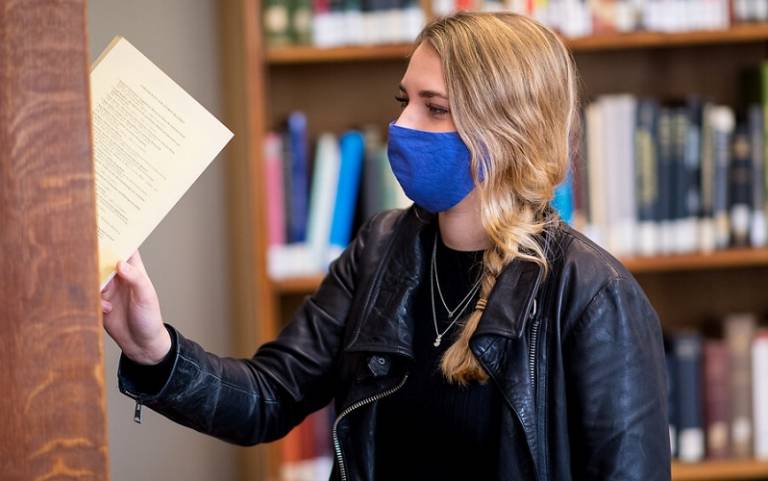How to avoid academic misconduct
24 February 2021
Russian Studies MA student Saskia Norman shares her top tips for sticking to good academic practice this assessment season.

Getting to grips with good academic practice is one of the most important parts of studying at university. UCL is a world-leading university, and this is largely due to its high academic standards. As part of the University community, it is your responsibility to adhere to these.
The consequences of academic misconduct could jeopardise your degree result, with penalties ranging from mark reduction to expulsion, depending on the allegation. However, this is easily avoided: here are a few ways to ensure you follow the rules and have the best university experience you possibly can!
Be careful who you look to for help
“I’d pay someone to write this essay for me!” is something we’ve all joked at some point in our lives. Using such services, however, is known as ‘contract cheating’ and goes against academic regulations. If you are found to have had your assessment completed by a third party, you will lose your place at UCL. There is also the risk of such companies blackmailing you, or a data leak revealing your use of such a service which could cause problems in your future life and career. Find out more about the risks of contract cheating.
Not only this, but it is also important to remember that the reason you are doing a degree is to develop your own skills. By using someone else’s work, you will miss out on this vital learning opportunity.
Instead of falling into such traps, get the most out of your degree by making use of the help available to you! If something unexpected is affecting your asessments, never feel afraid to ask your personal tutor for advice regarding extenuating circumstances. As well as this, UCL Student Support & Wellbeing are available to discuss any concerns you may have about your studies and have some fantastic resources on the website.
Get your referencing right
You may have noticed that whenever you submit an assignment to Moodle, it is passed through a system called TurnItIn. This is to check your work for plagiarism – that is, the use of other people’s work or ideas as your own without referencing or acknowledgement. A high similarity score may lead to an investigation, and penalties including expulsion.
The best way to combat this is by using referencing correctly. Make sure you check your department’s referencing requirements if you are unsure – better to be safe than sorry!
If you need more guidance, UCL Library Services has a useful tutorial on referencing and avoiding plagiarism.
What about exams?
High academic standards must also be applied in exam settings. Believe it or not, rules about plagiarism apply in exams too – if you present someone else’s ideas or words as your own without acknowledgement, you are still guilty of academic misconduct. In open book exams especially, use of essay mills and contract cheating is a risk your tutors are aware of, and you will still be penalised for it if you are found to have used these services. Remember, we’re being assessed on our understanding of concepts and topics, not our ability to copy and paste!
For more advice and guidance on good academic standards in exams, check out the UCL examination guide.
Not sure? Just ask!
Good academic conduct really boils down to being honest with your work and using your common sense. Most importantly of all, you should remember that there is so much support available to you at UCL. Always ask if you are not sure – it will benefit you in your development as an academic!
Related content
Academic integrity: why is it important and what happens if you breach it?
Tempted to cheat: Here’s why you should think again…
Referencing,citations and avoiding plagiarism tutorial
 Close
Close

